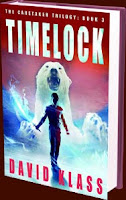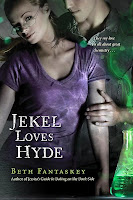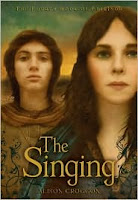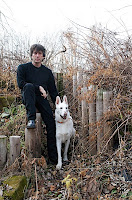My uncle used to believe in God. But that was before he served in Iraq. Now he’s an atheist. How could a God of perfect power and perfect love allow the innocent to suffer and the wicked to flourish?
Philosophers call this the problem of evil. It’s the problem of trying to reconcile two things that at first glance seem incompatible: God and evil. If the world were really governed by a being like God, shouldn’t we expect the world to be a whole lot better off than it is? But given the amount, kind, and distribution of evil things on earth, many philosophers conclude that there is no God. Tragedy, it seems, can make atheism reasonable.
Theists—people who believe in God—may share this sentiment in some ways, but in the end they think that the existence of God and the existence of evil are compatible. But how could this be? Well, many theists attempt to offer what philosophers call a theodicy – an explanation for why God would allow evils of the sort we find.
Perhaps good can’t exist without evil. But would that make God’s existence dependent on another? Perhaps evil is the necessary byproduct of human free will. But would that explain evils like ebola and tsunamis? Perhaps evil is a necessary ingredient to make humans stronger and more virtuous. But would that justify a loving human father in inflicting similar evil on his children? Other theists reject the attempt to explain the existence of evils in our world and yet deny that the existence of unexplained evil is a problem for rational belief in God.
The central idea is simple: just as a human child cannot decipher all of the seemingly pointless things that her parent does for her benefit, so, too, we cannot decipher all of the seemingly pointless evils in our world. Maybe they really are pointless, but maybe they aren’t — the catch is that things would look the same to us either way. And if they would look the same either way, then the existence of these evils cannot be evidence for atheism over theism.
Philosophers call such theists ‘skeptical’ theists since they believe that God exists but are skeptical of our abilities to decipher whether the evils in our world are justified just by considering them.
The debate over the viability of skeptical theism involves many issues in philosophy including skepticism and ethics. With regard to the former, how far does the skepticism go? Should theists also withhold judgment about whether a particular book counts as divine revelation or whether the apparent design in the world is actual design? With regard to the latter, if we should be skeptical of our abilities to determine whether an evil we encounter is justified, does that give us a moral reason to allow it to happen?
It seems that skeptical theism might invoke a kind of moral paralysis as we move through the world unable to see which evils further God’s plans and which do not.
Skeptical theists have marshalled replies to these concerns. Whether the replies are successful is up for debate. In either case, the renewed interest in the problem of evil has resurrected one of the most prevalent responses to evil in the history of theism — the response of Job when he rejects the explanations of his calamity offered by his friends and yet maintains his belief in God despite his ignorance about the evils he faces.
Headline image credit: Job’s evil dreams. Watercolor illustration by William Blake. Public domain via Wikimedia Commons.
The post When tragedy strikes, should theists expect to know why? appeared first on OUPblog.


I was looking through my old college archives and found this renaissance inspired (digital) painting I did during my junior yr (or was it senior yr?) of college. Since this weeks topic is old fashioned, I thought ‘well you can’t get anymore old fashioned than this!’ It’s taking a lot of restraint not to render the rough edges of this, but I think it’s good leaving the past unrendered, it’s easier to see how much ones evolved.
Have fab weekend yall! xoxo


Jack Danielson fans will love the breathtaking conclusion of the "Caretakers" trilogy! Jack is kidnapped and taken into the future world from which he came. There he finds answers for the traumatic adventures he had in saving the oceans and the rain forests in the first two books, Firestorm and Whirlwind. Now he enters the world's former Eden to find instead giant transport worms, king-sized scorpions and a scorching desert where you have to live underneath the crusty surface or in fantastic fortresses. The Dark Lord realizes that the time portal will be used by Jack and the Dannites to stop the polar ice cap melt, and speeds back in time to battle them. Jack, PJ and Eko travel with a courageous fellowship for the final showdown. Young men already love this series and will devour this finale as well. Some think this trilogy should be required science reading. What do you think?
ENDERS' Rating: ****
Caretaker Trilogy Website


A raven leads friend Liam and Max to the ruins of Rook Hall, an ancient fortification built to withstand raiders of the north. There on broken stones they find a baby with a note pinned to her blanket: "Plese look after her rite. This is a childe of God."
Liam's writer dad cannot believe their raven story, but that changes. So does everything else. Liam's boyhood mate, Nattrass, has mutated into a sociopath whose fascination with the macabre casts malice and fear. He is not the only dark character. When placing the foundling, Crystal and Oliver are introduced. The lives of these teens intertwine in a suspenseful finale when all of them have to "face the man in the mirror." Haunting story, fascinating, scary, "Lord of the Flies"-ish.
ENDERS' Rating: Eerie and enticing
David Almond's Website


Brava to BF! In her quest to delve into romantic stories involving dark sides she has concocted a deliciously wicked story with Jekel Loves Hyde. The story is gripping from "I buried my father the day after my seventeenth birthday." That is in the prologue...do not gloss over it by looking for chapter one. Jill discovers that her father's death, her not so delightfully alliterative last name, captivating Tristin Hyde, and a science competition sporting a hefty scholarship are all going to complicate her already sorrowful life. Fans of Jessica Guide may mourn the lack of a sequel of that novel, but not for long. Fantaskey's sense of suspense, shared first person narrations, and episodic tension make a page-turning read that is sure to keep YA readers begging for more.
ENDERS" Rating: Better have mutliple copies in my library!
Beth Fantaskey's Website


This final novel of the Book of Pellinor quartet sums up the high fantasy of the brother/sister team of Hem and Maerad, with an emphasis on Maerad’s adventures with Cadvan to find the treesong. She saves the fortress city of Innail from the impressingly evil Landrost at great peril. The erotic power of an even greater evil is always on her mind. She continues her transformation from slave to savior. I thoroughly enjoyed the adventure, comic relief, battles and freshly drawn fantasy with its own history and poetry and tales. Alison is a great storyteller and poet and linguist. Fantasy readers are going to be so happy with this quartet of books!
Books of the Quartet: The Naming, The Riddle, The Crow, The Singing.
ENDERS' Rating: Top high fantasy read
Alison Croggen's Website
The Books of Pellinor Website
The 100 Top Fantasies a British list....


If you have not read TGB yet, buy or check out an audio narrated by Neil Gaiman himself. Not only is he a top literary artist, but he is a gifted storyteller of varied voices, all captivatingly British.
Nobody Owens, Bod for short, is being raised from a toddler in a cozy, historic, and simultaneously dangerous and foreboding cemetery by a village of dead inhabitants, the major ones being his formerly childless parents, the Owens, and his black velvet-ed guardian, Silas. As graveyard personalities are introduced, their headstone birth and death dates are shared, as well as their epitaphs. Of course, Bod being raised by ghosts is an unusual occurrence, to be sure. You will love finding out WHY.
ENDERS Rating: 5 stars!
The Graveyard Book Website
Neil Gaiman's Journal
 What a beautiful storybook this is. This new fairy tale by Vivian French unfolds as it should and Jackie Morris' illustrations are lush and gorgeous. Renaissance motifs and jewel tones bring this magical story alive.
What a beautiful storybook this is. This new fairy tale by Vivian French unfolds as it should and Jackie Morris' illustrations are lush and gorgeous. Renaissance motifs and jewel tones bring this magical story alive.
In all good fairy tales, there is a clear depiction of good and evil and Singing to the Sun follows this tradition. Our hero is raised in a loveless home by a father focused on power and a mother focused on wealth. He is watched over and nurtured by the court jester and a wise tabby cat.
When he leaves his home to find his fortune, adventure and surprises are in store. There is a unique twist at the end of the story which brings the story to a delightful and satisfactory conclusion. This is a book to linger over and read again and again with your favorite child.















I havent' seen this yet. Would like to read.